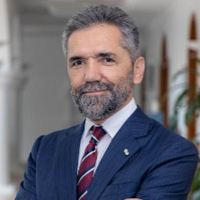First International Symposium on Comparative Education
Ghazali on Education: Contemporary Practical Applications from an Enduring Legacy
Symposium Overview
Muslims had been known as pioneers in establishing great schools and universities, financing them through endowments, curriculum development, and even diploma systems. Prophet Muhammad, peace be upon him, introduced mandatory education as a sacred activity from cradle to grave, which is what made Islam a global civilization. What lessons can we draw from this enduring legacy, spanning centuries and vast geographies, to improve our current education system? How can we engage them with present-day educational models and integrate their insights through a holistic and multiplex perspective? The symposium will explore comparative perspectives on education, drawing from the holistic and multifaceted framework established by classical Muslim scholars, thereby attempting to facilitate a constructive dialogue with contemporary approaches. The aim is to invite present-day scholars and practitioners to help develop a modern educational model that addresses current pedagogical challenges by deriving from the rich tradition of Islamic education and its best didactic practices, with a focus on producing practical applications to enhance educational outcomes.
To this end, these symposiums will analyze the works of great Muslim scholars who made a significant contribution to the field of education. The choice of Ghazali for the first symposium is the most fitting, as his intellectual and educational legacy truly stands out in Islamic Civilization. Applying Ghazali’s conception of education in our contemporary era leads us to the question of how his ideas can be utilized to develop an alternative educational model. Much has been written about Ghazali’s life, work, and philosophy, but this first symposium aims to focus solely on his ideas in the field of education.
Materialistic, individualistic, and positivistic secular humanistic ideologies dominate the discourse of education, globally and in the Muslim World. In this conjecture, we would like to invite scholars and practitioners to revisit the works of Ghazali with the following questions in mind: How can Ghazali help us overcome some of the challenges that modern or postmodern education is facing today? How can Ghazali help us develop an alternative education model that reflects Islamic ethos and holistic multiplex worldview? What does Ghazali offer us to take away from his time-honored works to apply in pre-key, elementary, and secondary levels, high schools, and universities?
The symposium will focus on how Ghazali’s historical legacy can transform the world of education today, and so it poses the question:
How can Ghazali help us address the contemporary issues and challenges humanity and the Muslim World face today in the field of education?
Dean's Message
As the Dean of the College of Islamic Studies at HBKU, I am honored to host the Ghazali on Education: Contemporary Practical Applications from an Enduring Legacy symposium. This marks the inaugural event in a forthcoming series of symposiums on comparative education, aiming to bring together ancient and contemporary educational paradigms to shed light on the present-day educational issues under investigation.
This year’s focus is on a pioneer in Islamic education, Imam Muhammad al-Ghazali. Al-Ghazali was not only a philosopher of education, an institution builder, and an author of numerous books, but also the founder of the Nizāmiyya madrasa system during the Seljuk period. This symposium aims to revisit al-Ghazali’s monumental legacy to help us develop contemporary Islamic applications in education. A millennium after his passing, it remains profoundly significant to revisit and revive al-Ghazali's legacy and envision our future standing upon the shoulders of giants.
It gives me great pleasure to see that we are making significant progress towards rooted revival (al-tajdīd al-muʾaṣṣal) in the field of Islamic education. This is particularly important today, given the many challenges in education worldwide. I hope our efforts will contribute to the solution of problems in education both locally and globally.


